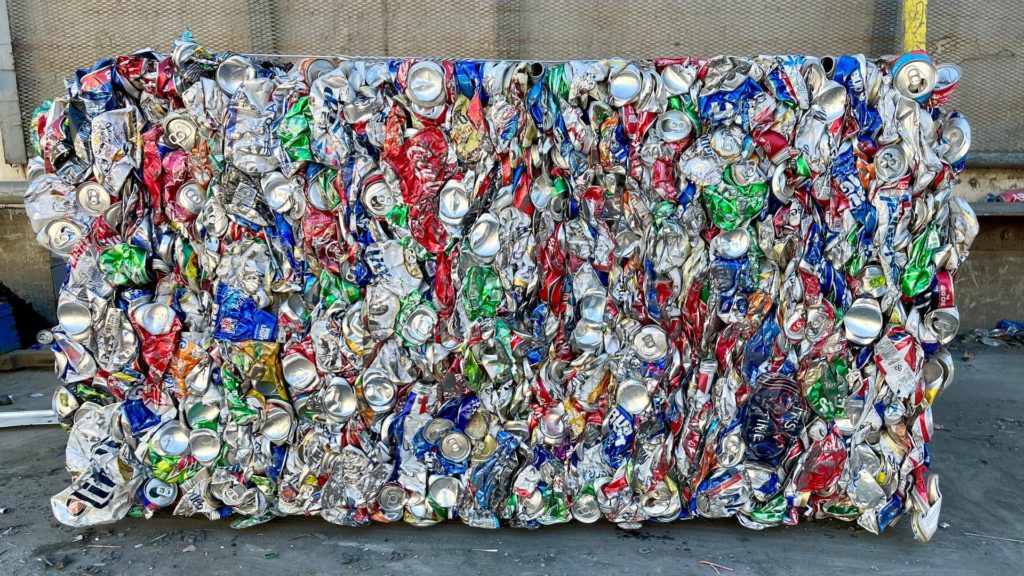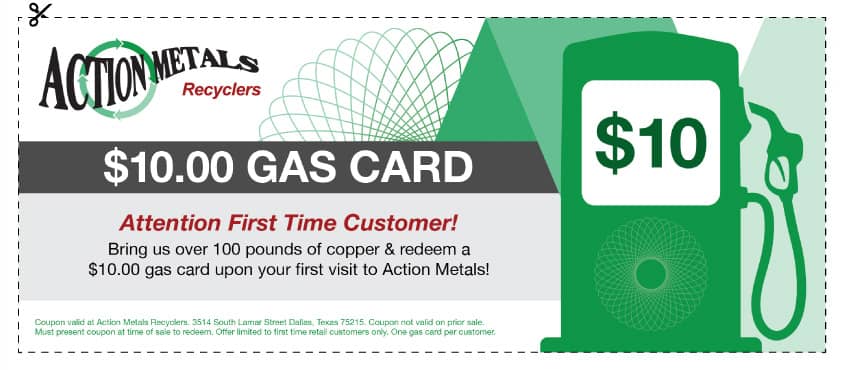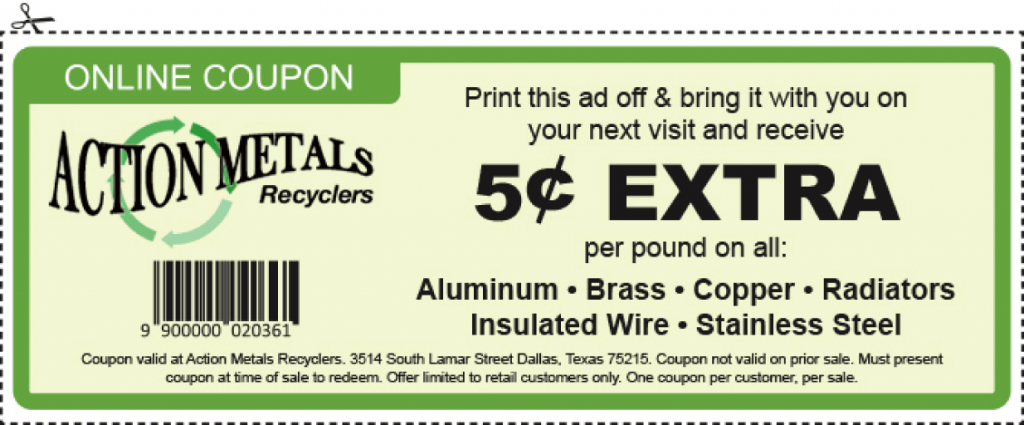At Action Metals Recycling, we’re proud to be your one-stop shop for all your scrap metal recycling needs in Dallas. But with so many different types of metal out there, it can be confusing to know what exactly we accept and how to prepare it for recycling. That’s why we’ve put together this comprehensive guide to help you navigate the world of scrap metal and make the most of your recycling experience.
Understanding the Different Types of Scrap Metal
Before we dive into the specifics of what we accept, let’s clarify the two main categories of scrap metal:
Ferrous Metals: These metals contain iron and are known for their magnetic properties. They’re typically strong and durable, making them ideal for construction and industrial applications. Common examples include:
- Steel: Found in everything from appliances and cars to buildings and bridges.
- Iron: Used in cast iron products like pipes, cookware, and machinery parts.
- Cast Iron: A strong and durable metal often used for engine blocks, manhole covers, and pipes.
Non-Ferrous Metals: These metals do not contain iron and are not magnetic. They’re often valued for their resistance to corrosion, conductivity, and malleability. Examples include:
- Aluminum: Lightweight and versatile, used in cans, foil, window frames, and car parts.
- Copper: An excellent conductor of electricity, found in wiring, plumbing, and electronics.
- Brass: An alloy of copper and zinc, used in plumbing fixtures, musical instruments, and decorative items.
- Bronze: Another copper alloy, known for its durability and used in sculptures, medals, and bearings.
- Stainless Steel: A corrosion-resistant alloy used in kitchen appliances, cutlery, and medical equipment.
What We Accept at Action Metals Recycling
We accept a wide range of both ferrous and non-ferrous scrap metal, including:
- Appliances: Stoves, refrigerators, washing machines, dryers, dishwashers, and more.
- Vehicles: Cars, trucks, motorcycles, and even boats (please remove all fluids and batteries beforehand).
- Construction and Demolition Debris: Steel beams, rebar, pipes, sheet metal, and other metal debris from construction sites.
- Industrial Scrap: Metal shavings, turnings, stampings, and other industrial byproducts.
- Electronics: Computers, laptops, cell phones, televisions, and other electronic devices (please note that some items may require special handling).
- Copper Wire and Cable: We accept various types of copper wire and cable, including insulated wire, bare bright wire, and copper tubing.
- Aluminum Cans and Scrap: Aluminum cans, foil, siding, gutters, and other aluminum items.
- Brass and Bronze: Plumbing fixtures, decorative items, and other brass and bronze scrap.
- Stainless Steel: Sinks, countertops, appliances, and other stainless steel items.
How to Prepare Your Scrap Metal for Recycling
Properly preparing your scrap metal before bringing it to our facility helps ensure a smooth and efficient recycling process. Here are some general guidelines:
- Sort your metals: Separate ferrous metals from non-ferrous metals. This allows us to process them efficiently and ensures you receive the best possible price for your scrap.
- Clean your scrap: Remove any non-metallic attachments, such as plastic, wood, or rubber. This helps maintain the quality of the recycled metal.
- Drain fluids: If you’re recycling appliances or vehicles, drain all fluids, such as oil, gasoline, and coolant, before bringing them in.
- Remove hazardous materials: Dispose of any hazardous materials, such as batteries, mercury-containing devices, and refrigerants, separately and responsibly.
- Break down large items: If possible, break down large items into smaller, more manageable pieces. This makes transportation and processing easier.
Why Recycle Metal with Action Metals Recycling?
Recycling metal with Action Metals Recycling offers numerous benefits:
- Environmental Responsibility: Metal recycling conserves natural resources, reduces landfill waste, and saves energy compared to producing new metal from raw materials.
- Financial Rewards: We offer competitive prices for your scrap metal, putting cash back in your pocket and making recycling a financially rewarding endeavor.
- Community Support: By recycling with us, you’re supporting a local business and contributing to the economic well-being of the Dallas community.
- Convenience: Our facility is conveniently located in Dallas, making it easy for you to drop off your scrap metal.
Recycling with Action Metals is Simple, Easy and Useful for Your Projects
From copper wire to old cars, Action Metals Recycling accepts a wide range of scrap metal, providing a convenient and responsible way for you to dispose of unwanted metal items while contributing to a sustainable future. By following our simple preparation guidelines, you can ensure a smooth recycling process and maximize the value of your scrap metal.
Contact us today or visit our facility to learn more about our services and how we can help you with your metal recycling needs. Together, let’s make a positive impact on the environment and the Dallas community.
FAQ
Q: What are your operating hours?
Our facility is open Monday through Friday from 8:00 a.m. to 6:00 p.m., Saturdays from 8:00 a.m. to 4:30 p.m. and Sundays from 8:00 a.m. to 12:00 p.m.
Q: Do you offer pickup services for large quantities of scrap metal?
Yes, we offer pickup services for commercial and industrial clients with large quantities of scrap metal. Contact us to arrange a pickup.
Q: How are scrap metal prices determined?
Scrap metal prices fluctuate based on market demand, the type and quality of the metal, and other factors. We provide up-to-date pricing information at our facility and on our website.
Q: Do you provide containers for collecting scrap metal?
Yes, we offer various sizes of containers for rent or purchase to help you collect and transport your scrap metal.








